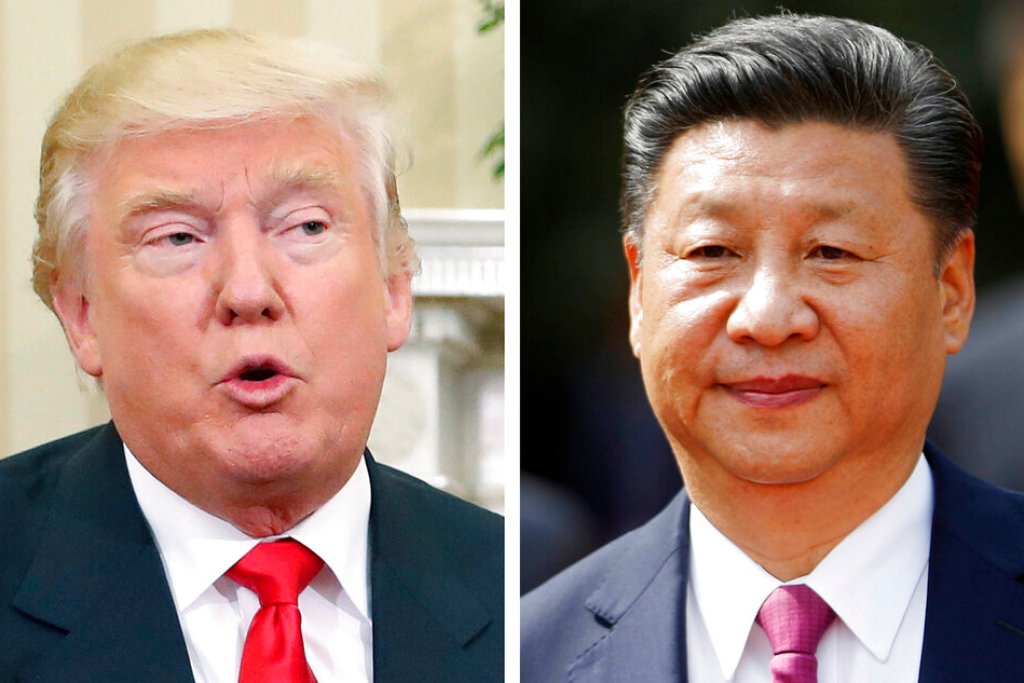


American foreign policy is at a tipping point. President Donald Trump’s “America First” vision and the policies that flow from this have had mixed results on the international stage. For example, while some tariffs have resulted in seemingly prosperous negotiations and growing domestic tax revenues to trim down our budget deficits, others have pushed our trade partners away from us and toward our adversaries, such as China.
Therefore, tough diplomacy between the United States and China sits at the top of the list of high-stakes negotiations, as this is the most significant international relationship in the world today. And with Trump beginning a series of conversations with Chinese President Xi Jinping, everyone’s nerves are on edge. Trump’s history of pandering to dictators and autocrats affects global confidence in his ability to negotiate effective deals with China. But I am confident that Trump, as an experienced deal-maker and the leader of our free country, will put America’s interests first.
Recommended Stories
- Taliban's global influence grows amid Pakistan skirmishes
- Trump should care about the Ivory Coast's democracy
- High school students should learn what happened to the hostages
It is with this in mind that I hope that Trump will remember, during these negotiations, the broader implications of any deal signed with China. Specifically, American allies and partners in the Asia-Pacific region need to pay close attention to these possible deals so that they can serve as counters to Chinese aggression and economic competition.
PENNSYLVANIA DEMOCRATS PRAISE TRUMP’S PEACE DEAL
For example, South Korea is one of America’s most prominent partners in the region. For years, our nations have benefited from joint military cooperation against nuclear threats and the sharing of high-tech goods and investments in sectors like semiconductors. We’ve also enjoyed each other’s cultural exports, most notably the massive K-pop phenomenon that’s now rampant in the U.S. and globally. Our deep bilateral ties have created a strong counter to China.
Yet while South Korea has served as a fantastic economic, cultural, and security ally to the U.S., a true diplomatic partnership requires shared values, such as the free flow of ideas and information between our nations, to be sustained. Unfortunately, South Korea is currently facing its own setbacks in how it interprets and enforces democratic values, harming our relationship.
We see this in how South Korea is suffering from a plague of politically motivated persecutions of its leaders. Look at the history of South Korea’s presidents. You’ll find a long list of leaders who have been removed from office and prosecuted at the hands of their political opponents. Earlier this month, it was reported that South Korea’s prosecution office, which has highlighted “a pattern of selective and politically motivated law enforcement,” is set for disbandment and reform.
But reform may be coming too late. This pattern of persecution has seeped into other spheres, including business. Innovative and successful business leaders are being targeted for their contributions to South Korean society. Take Bang Si-hyuk for example.
Bang founded and led HYBE Corporation, the South Korean entertainment giant dominating global pop culture with its K-pop bands. The company has created billions in revenue for South Korea and firmly established culture as the nation’s most important export and link to global influence. South Korean culture is now a truly global phenomenon.
Yet despite his innovative leadership and importance as a pop culture pioneer for the nation, Bang has fallen victim to South Korea’s systemic persecution crisis. He remains at the whims of his prosecutors despite evidence that refutes the allegations being made against him — many of which, it could be argued, are less severe than those committed by the 2,188 people for whom President Lee Jae-myung recently issued sweeping presidential pardons.
Unfortunately, the unjust treatment Bang and many other influential South Korean leaders are facing is just the tip of the iceberg. South Korea’s government has been in a monthslong state of instability, including a martial law crisis and a transition of power. This instability and corrupt policing are a governance failure that risks not only the erosion of decades of public trust but also key international diplomatic relationships.
TRUMP’S HISTORIC VINDICATION IN ISRAEL
As Americans, we should expect our diplomatic partners to be stewards of fair and just legal systems — something South Korea is failing at. Continued partnership between the U.S. and South Korea should hinge on whether or not South Korea can implement changes that bring its legal and regulatory environment back in line with the standards expected of a Western ally.
Trump must, during his China negotiations, have an eye toward fostering accountability, including opposing unjust prosecution, in South Korea. These negotiations will affect the region, and if he can do this, it would create a true win for America.
Joel Rubin is a former deputy assistant secretary of state and Democratic strategist. He is a leading expert in national security, foreign policy, and Jewish politics.
